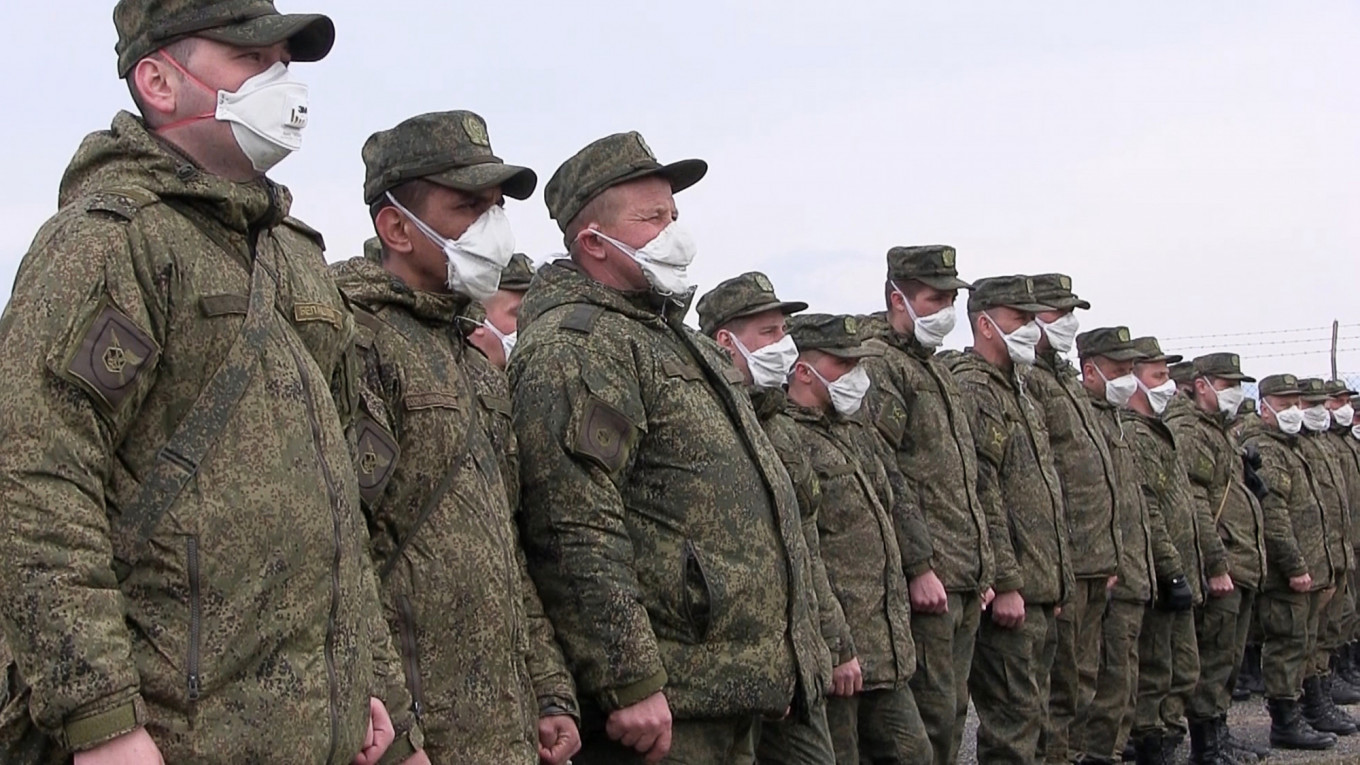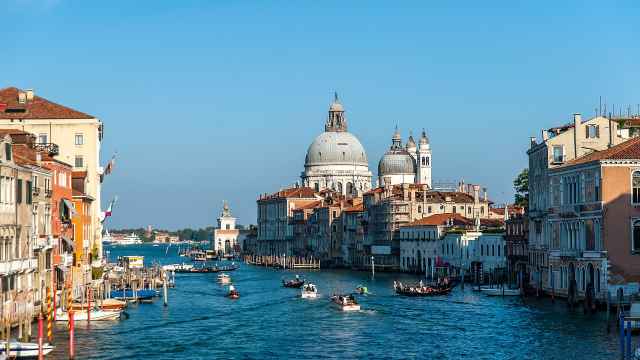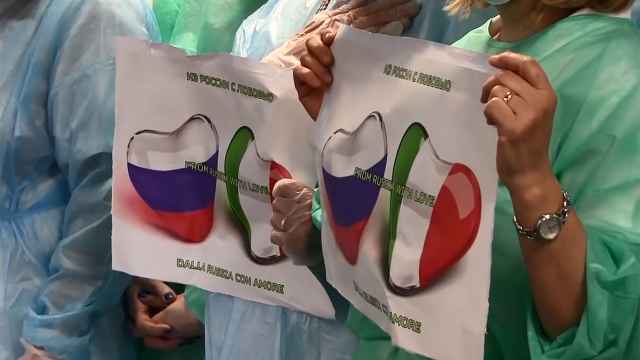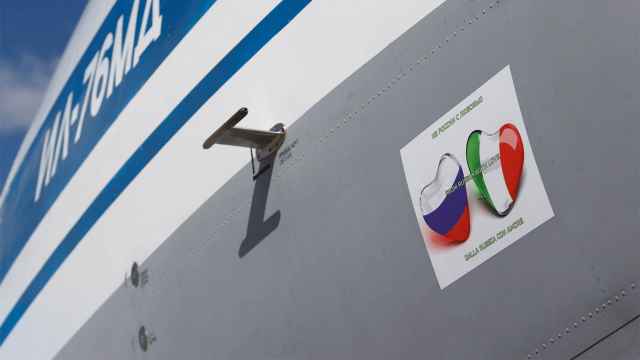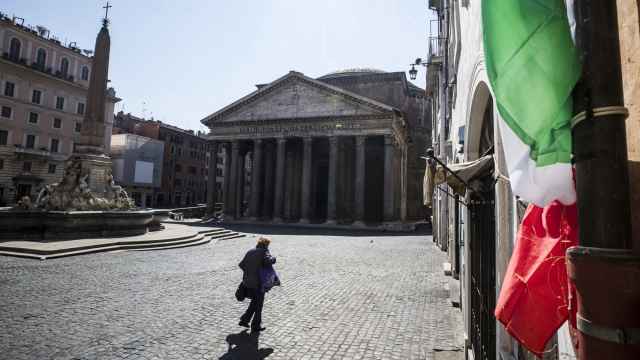Italy was engaged in a war of words with Russia on Friday over allegations Moscow hid spies among doctors it had sent to the country's coronavirus epicenter near Milan.
The unusual exchange between the traditionally friendly nations followed the publication of an Italian newspaper story about the purportedly nefarious nature of the Russian mission.
The Russians came last week to help disinfect hospitals and care homes in a northern Italian region that has recorded over half of the country's 14,681 official Covid-19 deaths.
It was a chance for Russian President Vladimir Putin to exert "soft power" at a moment of dire weakness for the West.
But Italy's La Stampa newspaper said Thursday that the 104-strong contingent of doctors and experts almost certainly included officers from Russia's GRU military intelligence agency.
"Without a doubt, there are GRU officers among them," former NATO chemical weapons expert Hamish De Bretton-Gordon told the paper.
Britain accuses GRU officers of trying to poison former Russian double-agent Sergei Skripal in England in 2018.
U.S. intelligence agencies believe the GRU also hacked the computer servers of US President Donald Trump's Democratic rivals during the 2016 election campaign.
"We can assume that (the Russian team) will want to find out as much about Italian forces as possible and set up intelligence networks," the former NATO expert told La Stampa.
Moscow's response was livid and swift.
Its embassy in Rome tweeted a statement Thursday from a Defense Ministry spokesman condemning La Stampa's "Russophobic Cold War fake news."
'Sorry and surprised'
The Defense Ministry accused the Italian paper of "hiding behind the ideals of free speech" to spread stories reminiscent of "anti-Soviet propaganda."
The vehemence of Russia's attack on one of Italy's main newspapers prompted the government of Prime Minister Giuseppe Conte to briefly turn its focus away from the raging virus crisis and tell Moscow to back off.
"While grateful for Russia's support, one cannot but criticize the inappropriate tone of certain expressions used by the Russian Defense Ministry spokesman," the government said in a statement.
"Freedom of expression and the right to criticise are fundamental values of our country," it said.
It noted that Russia had "the right to respond (to the allegations), but in a formal and correct manner."
The heated exchanges had by then spread to include the Russian Foreign Ministry and La Stampa itself.
Italians near Milan "met the Russian column of trucks with applause, singing the Russian national anthem," ministry spokesman Maria Zakharova said in Moscow.
Zakharova accused La Stampa of "distinguishing itself by running a number of defamatory articles about Russian humanitarian aid."
La Stampa said it was "sorry and surprised" by the range of Russian comments.
"Our articles have raised questions — both from Italians and others — about the possible presence of intelligence officers in the Russian mission," it said on its website.
But the paper said it still thought Russia was "demonstrating friendship and solidarity at a moment of great difficulty" for Italy.
The Italian government said the Russians will start treating patients at a field hospital not far from Milan after completing training.
A Message from The Moscow Times:
Dear readers,
We are facing unprecedented challenges. Russia's Prosecutor General's Office has designated The Moscow Times as an "undesirable" organization, criminalizing our work and putting our staff at risk of prosecution. This follows our earlier unjust labeling as a "foreign agent."
These actions are direct attempts to silence independent journalism in Russia. The authorities claim our work "discredits the decisions of the Russian leadership." We see things differently: we strive to provide accurate, unbiased reporting on Russia.
We, the journalists of The Moscow Times, refuse to be silenced. But to continue our work, we need your help.
Your support, no matter how small, makes a world of difference. If you can, please support us monthly starting from just $2. It's quick to set up, and every contribution makes a significant impact.
By supporting The Moscow Times, you're defending open, independent journalism in the face of repression. Thank you for standing with us.
Remind me later.


